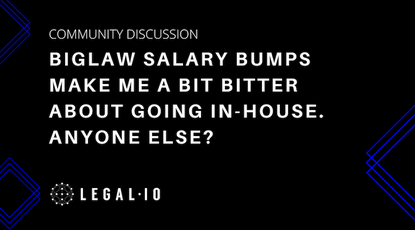The Federal Trade Commission has ignited a nationwide debate by banning noncompete clauses, and the repercussions are reverberating across statehouses. As the dust settles, states are reevaluating their stance on these restrictive covenants, leading to a dynamic landscape of legal changes.
The FTC Ban and State Action
The FTC’s proposal to prohibit noncompete provisions that hinder workers from switching jobs within an industry has prompted several states to reconsider their laws. Antitrust enforcers and employment lawyers anticipate a surge in state-level activity as legislators grapple with the balance between protecting businesses and empowering workers.
Intellectual Property Protections Beyond Noncompetes
The Federal Trade Commission’s noncompete ban doesn’t completely strip employers of intellectual property protections. If the prohibition withstands legal challenges, companies will still have a variety of tools at their disposal:
-
Nonsolicitation Agreements: These agreements restrict departing employees from soliciting clients or colleagues from their former workplace.
-
Nondisclosure Agreements: Employers can use these to prevent the disclosure of sensitive information.
-
Trade Secret Commitments: Companies can require employees not to reveal proprietary trade secrets.
-
Garden Leave: Originating in the United Kingdom, garden leave compensates departing employees for doing nothing other than “tending to their garden.” It ensures IP protection while allowing employees to transition smoothly.
John Siegal, a Partner at Baker & Hostetler, emphasizes that these alternatives will become even more critical. He participated in a webinar on the FTC rule, which drew over 400 participants, highlighting the potential effects of the commission’s latest maneuver. While nonsolicitation agreements may emerge as the best alternative if noncompetes go away, crafting employment terms that are highly restrictive can still run afoul of the new regulation.
Navigating the Gray Areas
Despite these alternatives, the line between permissible restrictions and regulatory scrutiny remains blurred. For instance:
-
Nonsolicitation vs. Noncompete: In specialized industries, a nonsolicitation agreement might function similarly to a noncompete. Context matters.
-
Executive Exemptions: The FTC ban excludes highly paid senior executives. Determining who qualifies as a policymaker is complex and subjective.
-
Sale-of-Business Exemption: Fortunately, the noncompete rule doesn’t seem to affect protections during mergers and acquisitions.
As the legal landscape evolves, businesses must adapt, protect their interests, and navigate the nuances of IP safeguards.
Legal Challenges and Industry Impact
Legal challenges to the ban have already begun, and the legal tech sector is abuzz with discussions about the potential impact. Experts weigh in on how this development might affect hiring, talent acquisition, and innovation:
Brad Blickstein, Founder and CEO of Blickstein Group
Should the rule take effect, it will significantly impact the legal tech space. While it may create some initial discomfort for entrenched providers, the absence of noncompetes should foster more startups and spur innovation. Many great ideas have been trapped inside the heads of employees who fear violating their noncompetes. With this barrier removed, we should expect to see new, innovative products emerge into the marketplace.
Brett Burney, Principal of Burney Consultants; E-law evangelist at Nextpoint
Noncompetes are prevalent in sales positions within the legal tech industry. Companies invest heavily in training sales professionals who understand how to sell to legal clients. Noncompetes prevent these valuable employees from being poached by competitors. However, there’s an ethical layer—some firms want to keep their technology usage confidential. While noncompetes serve a purpose, confidentiality clauses or nondisclosure agreements could achieve similar goals.
Cat Casey, Chief Growth Officer at Reveal
The FTC’s action is a step in the right direction, but the carveout for “Senior Executives” weakens the effort. The salary threshold for exclusion—$151,164—doesn’t negate the exploitative nature of noncompetes. Additionally, claiming that executives can negotiate terms with assistance from counsel overlooks the reality for many professionals. Nevertheless, this change benefits the legal community by retaining top talent and fostering better products and solutions.
CJ Webster, President of C Webster Consulting LLC
The ban is a victory for our legal community. States like California had lax regulations on noncompetes, allowing employees to move freely between legal tech companies. Now, with the ban in place, we can retain talent, enhance workflows, and drive innovation.
Former Legal Tech CEO (Name withheld)
Noncompete clauses, whether embedded in employment agreements or part of sale agreements, have historically burdened talent mobility. While the FTC’s move is a positive step, enforceability remains questionable. Seeking specialized legal counsel is crucial. The impact extends beyond direct competitors to the broader industry ecosystem, including startups facing intimidation tactics.
In summary, the battle over noncompetes is far from over, and statehouses will play a pivotal role in shaping the future of employment relationships in the legal tech industry.











